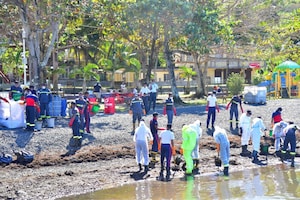Drug-resistant diseases are a cause for concern globally. According to the World Health Organization, such diseases could push up to 24 million people into extreme poverty and also deal a strong blow to the world economy by 2030.
Besides, they could cause 10 million deaths each year by 2050, if no action is taken. As per WHO, at least 7,00,000 people die each year due to drug-resistant diseases currently. These numbers include 2,30,000 people who lose their lives to multidrug-resistant tuberculosis.
Now, a study conducted by researchers from the Singapore-MIT Alliance for Research and Technology (SMART) offers hope. They have found a new way to reverse antibiotic resistance in some bacteria using hydrogen sulfide (H2S).
Hydrogen sulfide is a natural defence against antibiotics in some bacteria. However, it can cause increased sensitivity to antibiotics in bacteria that do not produce H2S.
During the study, the researchers discovered that the production of endogenous H2S in bacteria causes antibiotic tolerance.
They confirmed this by adding H2S releasing compounds to pathogenic bacteria that do not produce hydrogen sulfide on their own.
These bacteria are called Acinetobacter baumannii. It was observed that exogenous H2S sensitised the bacteria to multiple antibiotic classes.
The interesting thing was hydrogen sulfide even reversed acquired resistance in A. baumannii to gentamicin. The gentamicin is a common antibiotic used to treat several types of infections.
“This is a very exciting discovery because we are the first to show that H2S can, in fact, improve sensitivity to antibiotics and even reverse antibiotic resistance in bacteria that do not naturally produce the agent,” said Wilfried Moreira, the corresponding author of the paper and Principal Investigator at SMART’s AMR IRG.










